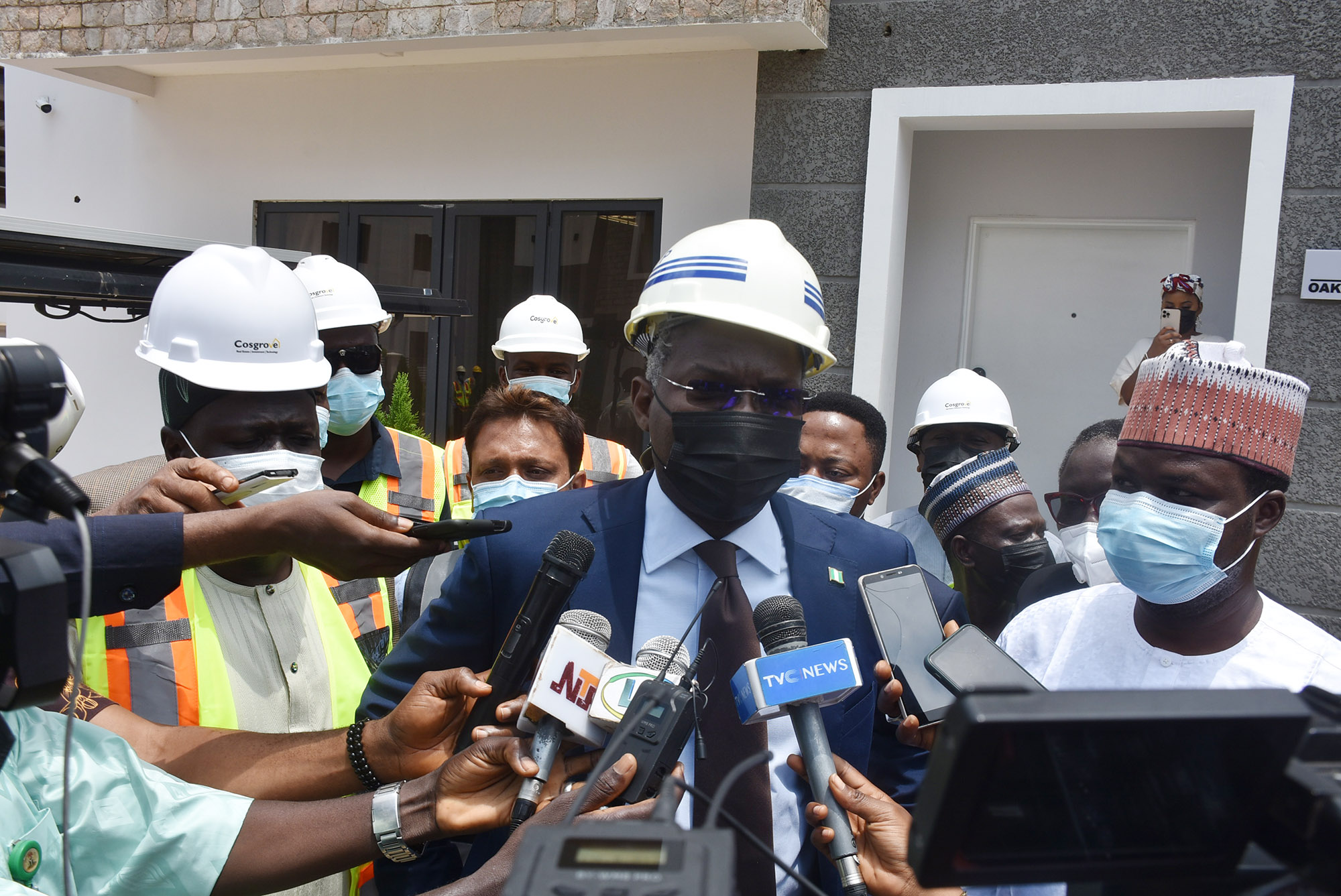Business
MAN To Partner FRSC On Truck Drivers’ Training In Edo

The Manufacturers Association of Nigeria (MAN), Edo/Delta State branch, says it will collaborate with the Federal Road Safety Commission (FRSC) in Edo State to train members’ truck drivers in the state.
Chairman, MAN, Edo/Delta State branch, Dr Okwara Udensi, said this while receiving the FRSC Edo State Sector Commander, Mr Henry Benamaisia, on a courtesy visit in Benin, yesterday.
Udensi said the training was apt and supportive and would go a long way to enhance the skills of drivers who work for members of the association in the state.
“There is the need for collaboration between the association and relevant stakeholders like FRSC.
“Our members have trucks that convey both raw materials and manufactured products.
“The training for both our members and their truck drivers is very necessary as it will serve as a refresher course and promote good driving skills.
“There has been a cordial relationship between the FRSC and our members and we want to sustain this relationship,” he said.
The chairman commended FRSC for reaching out to its stakeholders in order to ensure safety of lives and property on the roads.
Earlier, Benamaisia said the commission would collaborate with MAN to promote professionalism among truck drivers who worked for different manufacturing companies in the state.
“We have been reaching out to different stakeholders in the transportation sector.
“We decided to pay a courtesy visit to your association because we know your members have trucks that convey products within and out of the state.
“We want to partner the association to train these drivers on best driving standards with a view to reducing accidents on our roads,” he said.
He said the commission had continued to live up to its responsibility of ensuring safer roads through training of drivers and education of members of the public on road safety tips.
Business
Group Pledges Stronger Partnerships For Food Security

The River Basin Development Authorities (RBDAs) in Nigeria have pledged to boost the Federal Government’s food security efforts by forming stronger partnerships and adopting modern agricultural technologies.
The representative of RBDAs, Alhaji Abubakar Malam, who spoke on behalf of the boards and management teams at the close of a two-day retreat in Abuja, recently, acknowledged the numerous challenges facing the authorities.
He noted the persistent issues of ageing infrastructure, extreme weather conditions, and insecurity that continue to hinder optimal productivity across their zones.
Malam, who is also the Managing Director of the Sokoto Rima River Basin Development Authority, noted the dilapidated state of facilities and outdated equipment that limit the full potential of the river basin authorities.
“Our facilities are obsolete, and climate change is exacerbating the situation with flooding, erosion, and erratic weather patterns.
“Yet, we remain undeterred. We are committed to innovating, adopting modern irrigation technologies, and shifting the narrative of the River Basins to a more sustainable and productive future”, he said.
Malam emphasised that these objectives cannot be achieved in isolation and stressed the importance of collaboration.
He noted, “We are committed to building strong partnerships, particularly with state governments, to ensure that local actions are aligned with national priorities.
“Collaboration is key to enhancing extension services, addressing community needs, and improving project outcomes”.
The Managing Director also assured stakeholders that the river basin authorities will continue to maintain open-door policies under the federal government’s partial commercialisation framework, which aims to encourage private sector investment.
“This framework is seen as an essential step in reviving Nigeria’s agricultural sector by providing opportunities for agribusiness development, rural economy revitalisation, and sustainable irrigation practices.
“In alignment with President Bola Tinubu’s Renewed Hope Agenda and the UN Sustainable Development Goals (SDGs), particularly Goals 2 (Zero Hunger), 6 (Clean Water and Sanitation), and 13 (Climate Action), the RBDAs are focusing on expanding irrigated farmlands, equipping farmers with modern agricultural techniques.
“Others are enhancing value chains to reduce food waste, boost production, and improve market access.
“These efforts are designed to increase food availability and contribute to the goal of achieving food security for the nation by 2027”, he stated.
The Joint Appointees Forum further called on development partners, private sector players, and other stakeholders to seize the emerging opportunities in Nigeria’s agriculture sector.
The forum highlighted the potential for collaboration in revitalising rural economies through sustainable irrigation and agribusiness development, which will ultimately support the government’s food security agenda.
Business
SEC Cautions Nigerians Against Ponzi Schemes

The Securities and Ex-change Commission (SEC) has cautioned Nigerians on the dangers of Ponzi schemes, highlighting their devastating impact on investor confidence, financial stability, and the Nigerian capital market, specifically.
SEC in a release through the Head of its Enforcement Department, Dr. Sa’ad Abdulsalam, after an Enlightenment Programme on Capital Market, noted that the pitfalls and illegality of Ponzi Schemes ought to be avoided.
Abdulsalam stated that the proliferation of fraudulent investment schemes continue to erode public trust in formal investment platforms by offering unrealistic returns and operating outside the regulatory framework, destabilized investor sentiment and undermined participation in legitimate capital market activities.
“The erosion of market confidence caused by Ponzi schemes leads to significant volatility and reduced investor engagement.
”The fallout not only damages individual finances, but also tarnishes the reputation of regulatory institutions tasked with protecting investor interests”, he noted.
Beyond the capital market, Abdulsalam emphasized that the social and economic consequences of Ponzi schemes are far-reaching, noting that household financial losses, often involving life savings or borrowed funds, intensify socio-economic stress and threaten community cohesion.
“These losses are not just figures on a balance sheet. They represent broken trust, devastated livelihoods, and increased poverty in affected communities.
“Nigeria has a long and troubling history with Ponzi operations”, he explained.
He further noted that from the infamous Umanah Umanah scheme in the 1990s to Nospecto in the early 2000s and the widespread MMM craze of the 2010s, fraudulent fund managers have repeatedly exploited regulatory gaps and economic vulnerabilities.
According to him, over 400 unlicensed fund managers were uncovered in 2010 alone, underscoring the scale of the threat.
He attributed the rise of Ponzi schemes to several factors, including limited financial literacy, the lure of quick returns during periods of economic hardship, and the rapid spread of misinformation through social media.
Abdulsalam, however, noted that the proliferation of fraudulent investment schemes continues to erode public trust in formal investment platforms by offering unrealistic returns and operating outside the regulatory framework, destabilized investor sentiment and undermined participation in legitimate capital market activities.
By: Corlins Walter
Business
CBN Identifies Money Supply Increase From N114trn To N119trn In April

The Central Bank of Nigeria (CBN) has said money supply (M2) increased by 4.2 percent, month-on-month (MoM), from N114.2 trillion in March, to N119.1 trillion in April 2025.
According to the apex bank’s Money and Credit Statistics data for April 2025, the increase in money supply followed positive changes in its components, with Quasi-money, including savings deposits, time deposits, and other near-money assets, rising significantly.
The data showed that Quasi Money grew by 3.17 percent MoM to N78.1 trillion in April from N75.7 trillion in March.
Similarly, Demand Deposits increased by 7.4 percent MoM to N36.4 trillion in April from N33.9 trillion it was in March.
The CBN data report also showed that Narrow money (M1) also grew by 6.2 percent MoM to N41 trillion in April from N38.6 trillion it was in March.
Nevertheless, currency outside banks increased slightly by 0.4 percent MoM to N4.57 trillion in April from N4.59 trillion in March.
Also, the data showed that credit to the government fell by 8.8 percent MoM to N23.6 trillion in April from N25.9 trillion in March, representing the second consecutive month’s decline since March.
On the other hand, credit to the private sector grew by 2.1 percent MoM to N77.9 trillion in April from N76.3 trillion in March.
According to the data report, this resulted in a 0.61 percent MoM decline in net domestic credit to N101.5 trillion in April from the N102.13 trillion it was in the month of March.
By: Corlins Walter
-

 News8 hours ago
News8 hours agoNDLEA Arrests Three Kano Drug Kingpins, Saudi Bound Pilgrims
-

 Politics18 hours ago
Politics18 hours agoOkpebholo Gifts Council Chairmen SUVs, Denies Interference With LG Funds
-

 News8 hours ago
News8 hours agoPiracy: Maritime Organisation Set To Deploy Men To Waterways
-

 City Crime9 hours ago
City Crime9 hours agoIAUE Graduates 4,379, Four Bag First Class
-

 Business8 hours ago
Business8 hours ago‘Agriculture, Vital Part Of Rivers Economy’
-
News18 hours ago
Weeds Take Over Site Of Proposed Border Park Facility In Cross River
-

 News8 hours ago
News8 hours agoRSG Debunks Report On Julius Berger’s Withdrawal From Project Sites
-

 Politics18 hours ago
Politics18 hours agoReps Propose Jail Term For Workplace Bribery

